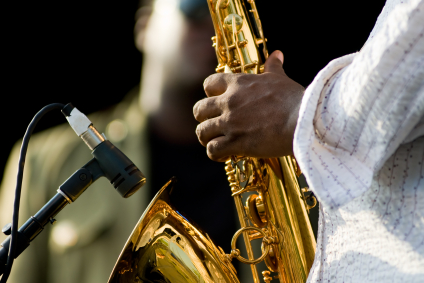In his famous inaugural speech, President Franklin D. Roosevelt said: “The only thing we have to fear is … fear itself.” Fear, however, is a true emotion and takes effort to overcome. In color guard, here are ways to avoid succumbing to your worst fears.
|
Fear |
Fix |
|
|
1. Your Nemesis Move |
What if this is the time your rifle comes crashing to the floor? |
Trust in your training. Don’t panic. The moment will come when you release your rifle into the air. Just go for it! |
|
2. Going Blank |
What if you forget your move? |
Just keep moving with confidence. Your rehearsal memory will kick in quickly. Before you know it, you will be in the routine. |
|
3. Getting Psyched Out |
The other guards seem more polished and confident than you. |
Other guards may make you feel inadequate; don’t let them control your performance! Have the mindset of competing against your own personal best. Make the competitors your inspiration. |
|
4. The Dreaded Costume Malfunction |
Your phony pony becomes a projectile missile flying from your head. |
The show must go on! If a body part is revealed, COVER IT, but otherwise keep performing as if nothing happened. |
|
5. Letting Down Your Team |
No one wants to make a mistake during competition. |
Everyone on the team is going to mess up at some time or another, so create a team environment in which everyone is supported and not treated negatively when this happens. |
Remember that for every fear you may have, there is a fix. Think reasonably and apply what you have learned in countless rehearsals to the competitive arena.
“Knowing what must be done does away with fear.” – Rosa Parks
About the Author
Chris Casteel has been involved in the color guard activity for more than 20 years. She is currently an adjudicator for Drum Corps International, Southern California School Band and Orchestra Association and the Winter Guard Association of Southern California (WGASC). She travels to many other circuits throughout the United States as a guest adjudicator. For the past several years, she has held the position of education coordinator for the WGASC. She has a master’s degree in education and currently teaches middle school language arts.


